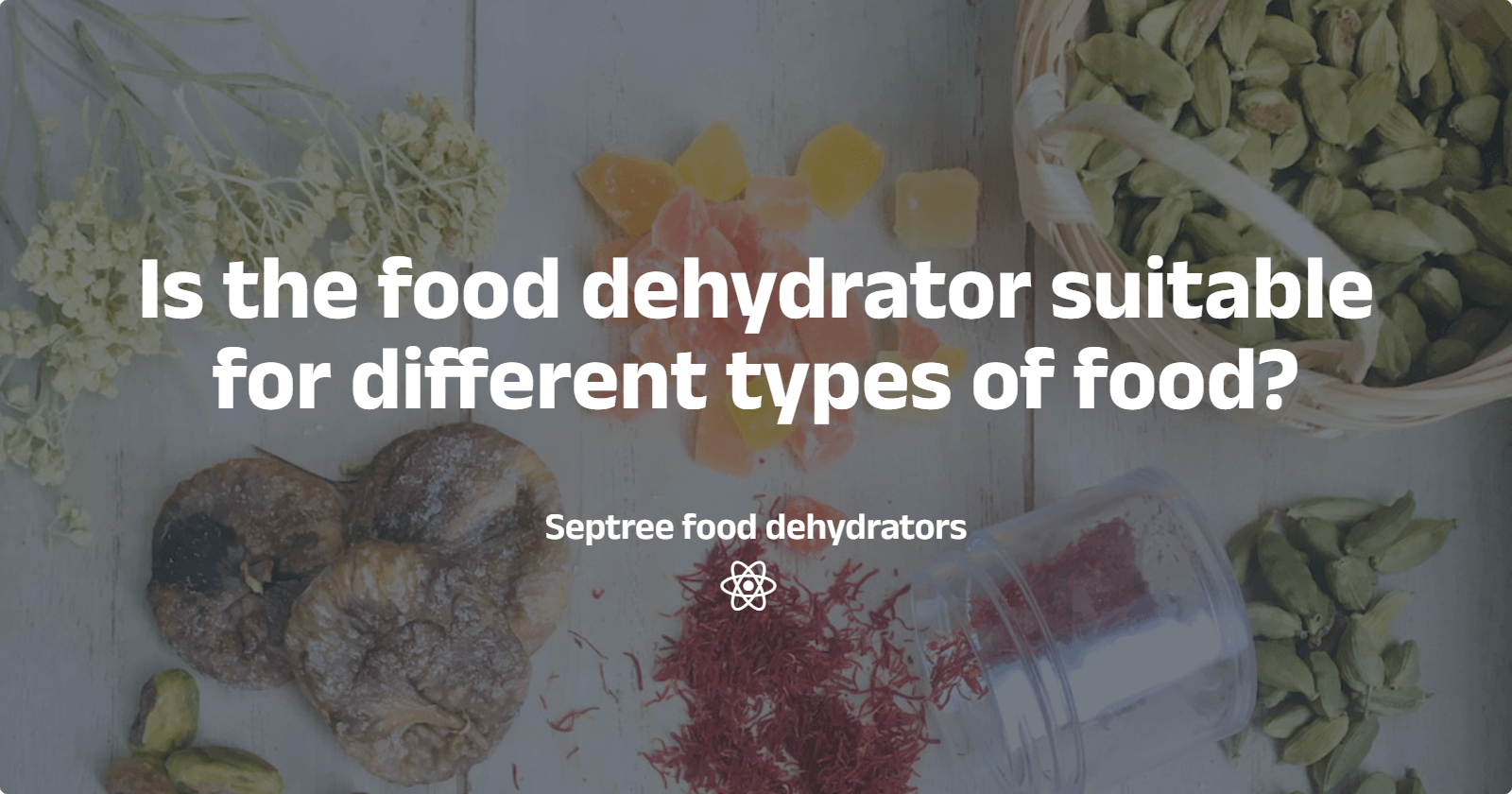Is the food dehydrator suitable for different types of food?

Yes, food dehydrators are suitable for drying a wide variety of foods. They are versatile appliances that can effectively dehydrate different types of food, including fruits, vegetables, meats, herbs, nuts, seeds, and even certain types of dairy products.
Here are some examples of foods that can be dehydrated using a food dehydrator:
Fruits: Apples, bananas, berries, mangoes, pineapples, and more. Dehydrated fruits can be enjoyed as a healthy snack or used in recipes like trail mixes, granola bars, or baked goods.
Vegetables: Tomatoes, peppers, carrots, mushrooms, zucchini, kale, and more. Dehydrated vegetables can be used for soups, stews, salads, or rehydrated for cooking.
Meats and Jerky: Beef, poultry, fish, and game meats can be thinly sliced and dried in a food dehydrator to make jerky. Proper meat handling and safety guidelines should be followed when making jerky.
Herbs and Spices: Basil, oregano, thyme, rosemary, cilantro, and various other herbs and spices can be dried in a food dehydrator for long-term storage or to enhance the flavor of dishes.
Nuts and Seeds: Almonds, walnuts, cashews, pumpkin seeds, sunflower seeds, and more. Dehydrating nuts and seeds can help increase their shelf life and make them crunchier.
Dairy Products: Yogurt can be transformed into yogurt chips by dehydrating it. Some food dehydrators also have specific settings for making yogurt or cheese.
It's important to note that different foods may require different drying times and temperature settings. The manufacturer's instructions and guidelines should be followed to ensure proper drying and food safety.
Additionally, it's crucial to consider food safety guidelines when dehydrating food, such as using fresh and high-quality ingredients, properly cleaning and preparing the food, and storing the dehydrated food in airtight containers in a cool, dry place.
Overall, food dehydrators offer a convenient and efficient way to preserve and enjoy a wide range of foods.
Here are some examples of foods that can be dehydrated using a food dehydrator:
Fruits: Apples, bananas, berries, mangoes, pineapples, and more. Dehydrated fruits can be enjoyed as a healthy snack or used in recipes like trail mixes, granola bars, or baked goods.
Vegetables: Tomatoes, peppers, carrots, mushrooms, zucchini, kale, and more. Dehydrated vegetables can be used for soups, stews, salads, or rehydrated for cooking.
Meats and Jerky: Beef, poultry, fish, and game meats can be thinly sliced and dried in a food dehydrator to make jerky. Proper meat handling and safety guidelines should be followed when making jerky.
Herbs and Spices: Basil, oregano, thyme, rosemary, cilantro, and various other herbs and spices can be dried in a food dehydrator for long-term storage or to enhance the flavor of dishes.
Nuts and Seeds: Almonds, walnuts, cashews, pumpkin seeds, sunflower seeds, and more. Dehydrating nuts and seeds can help increase their shelf life and make them crunchier.
Dairy Products: Yogurt can be transformed into yogurt chips by dehydrating it. Some food dehydrators also have specific settings for making yogurt or cheese.
It's important to note that different foods may require different drying times and temperature settings. The manufacturer's instructions and guidelines should be followed to ensure proper drying and food safety.
Additionally, it's crucial to consider food safety guidelines when dehydrating food, such as using fresh and high-quality ingredients, properly cleaning and preparing the food, and storing the dehydrated food in airtight containers in a cool, dry place.
Overall, food dehydrators offer a convenient and efficient way to preserve and enjoy a wide range of foods.


Leave a comment